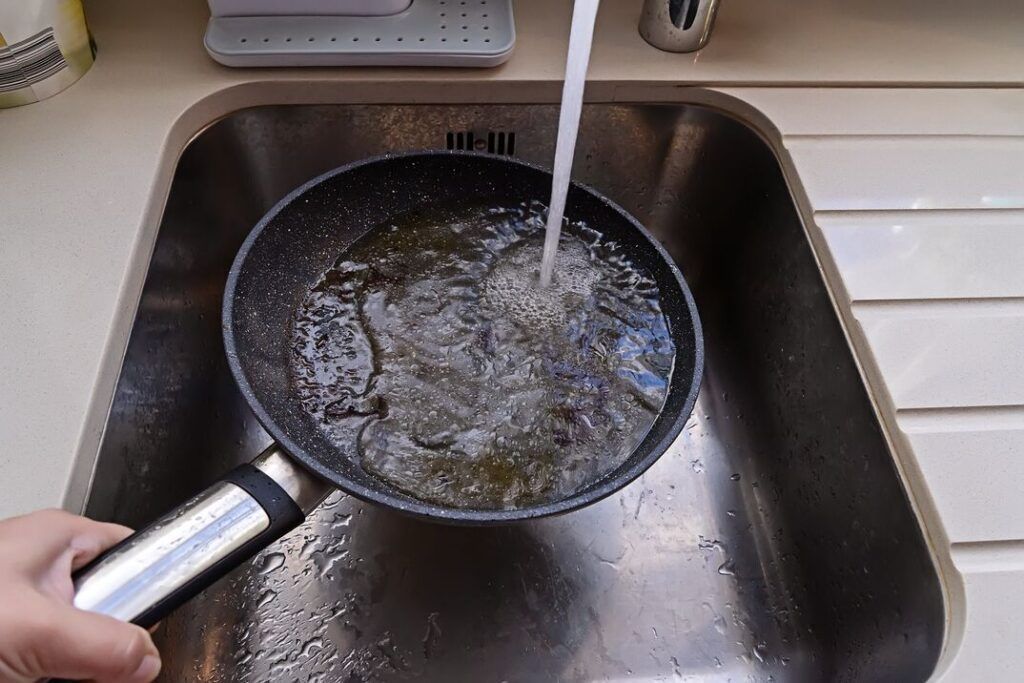Understanding the Importance of Grease Trap Services

There is a lot that your restaurant’s plumbing system shares with a residential kitchen. But that doesn’t mean that your commercial plumbing system isn’t exposed to some risks that don’t necessarily impact your home. When you have a restaurant, your Bellaire, TX commercial plumbing system is constantly at risk due to its exposure to problems caused by fats, oils, and grease, otherwise known as FOG. Since your commercial kitchen works at sigh a high volume, FOG can be a pretty serious threat.
This is why it’s vital that you have a functioning grease trap system in place, and that you have it serviced as needed. Commercial grease traps are vital to not only preventing clogged drains and clogged sewer lines on and around your property, but also for the municipal plumbing system. Whatever commercial grease trap services you may need, you can count on our plumbers to do the job right.
How Do Commercial Grease Traps Work?
Residential properties don’t typically need designated grease traps (although, you should avoid putting FOG down the drain, for sure). Due to the volume of cooking fats and grease, in addition to dirty dishes being thrown in the dishwashers and sinks, however, commercial kitchens can run into very serious issues with grease buildup. The purpose of the commercial grease trap is, as you’ve probably figured out, to trap grease before it enters your drainage system.
The way this works is similar to a septic tank. Wastewater stays in the grease trap, and as it cools, the FOG hardens and floats to the top. It’s lighter than the water, which allows for this to occur naturally. Hard bits of food solids sink to the bottom of the trap, and the wastewater is held in the middle. Once this separation has occurred, the wastewater is forced out of the trap and into the sewer.
Where Do the FOG and Food Particles Go?
This is an understandable, and important, question. After all, the grease trap is like a septic tank, where there is only so much room. This is why you need to have the grease trap cleaned out routinely, just like a septic tank has to be pumped on a regular basis. The last thing you want to deal with in your commercial space is a backed up grease trap, particularly when you have guests eating in your establishment.
What Happens without a Grease Trap?
As we mentioned above, when FOG enters the grease trap and cools down, it congeals and solidifies. Without a grease trap, it would congeal and solidify in your pipes instead. If this happens, then you could easily find your commercial space with impossibly clogged drains and a clogged sewer system—leading to a much more serious plumbing problem.
You also have to consider the municipal sewer system. If the grease from all the restaurants in your area were to just flow into the sewer system, it could have devastating effects on your entire community. For this reason, most cities legally require all restaurants to have these systems in place, otherwise they could face a very serious fine or even risk their establishment being shut down.
For “Services You Can Depend On,” contact Doug Turner Plumbing CO. today.
The post Understanding the Importance of Grease Trap Services appeared first on Doug Turner Plumbing CO..
CONTACT INFORMATION
Physical: 9945 Mula Rd. Stafford, TX 77477
Mailing Address: PO Box 1177 Sugar Land, TX 77487
Phone: (281) 201-6065

